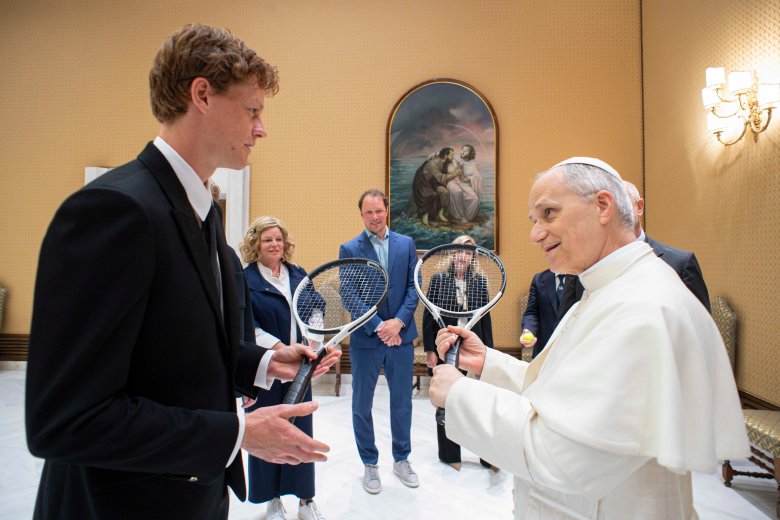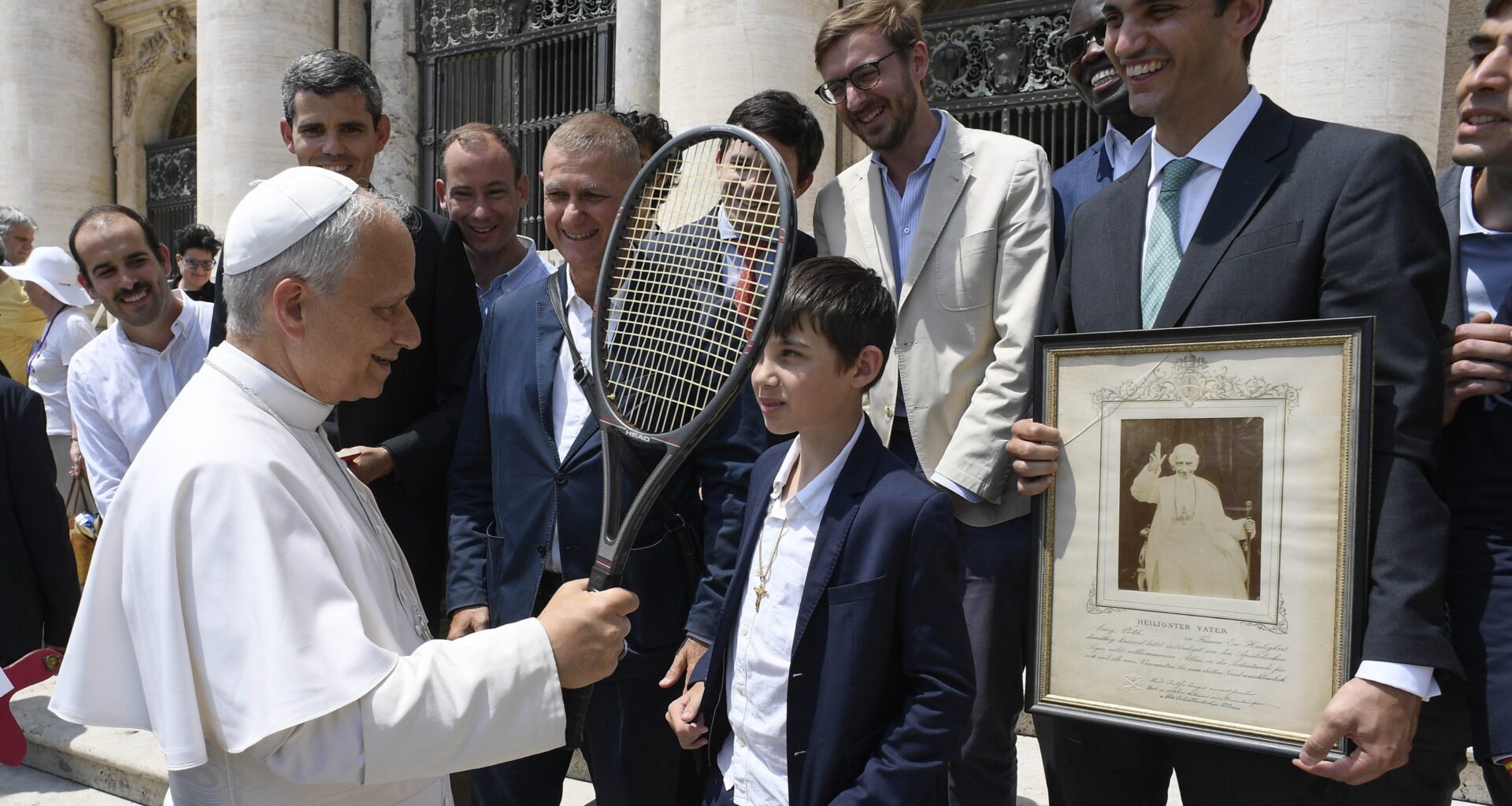Like many of us, I took Pope Francis’ death on Easter Monday of this year hard. I felt a sense of fraternal pride in the first Jesuit pope, not just because he was a Jesuit or because his papacy manifested the very best of the Society of Jesus’ tenets on social justice and spirituality. I was also proud of Francis for the simple fact that he was a good pope. Francis knew how to engage with the world, particularly the media, in a way that was appropriately conciliatory yet ultimately productive in its ability to make a 2,000-old plus institution amenable and comprehensible to an increasingly secularized world.
As a film scholar I couldn’t help but note in the days following Francis’ death how prescient the release of Edward Berger’s Academy Award-winning film “Conclave” (2024) had been the previous autumn. But I paid scant attention to the media coverage leading up to and during the actual papal conclave. This was in part because of mourning Francis, but also because my expectations for his successor were low; my only concern was that the next pope not entirely undo the progress the church had made in the previous decade.
I was also on the road during the conclave, doing stand-up comedy shows in the Midwest during the brief two-week break I had between the end of classes and before commencement at the university where I teach in Los Angeles. It just so happened, I was walking into my parents’ house in south suburban Chicago that morning in early May when the new pope was announced. “Habemus Papam!” and that Papam happened to be an American (North and South, as it would turn out), who also happened to be a Chicago native, and a Southsider no less!
Yes, I was onboard; and yes, as a Southside of Chicago native, my excitement for the new pope was completely shallow and chauvinistic. But I took my hometown pride and ran with it. Chicago might not have had a championship professional sporting franchise in nearly a decade (Cubs 2016!), but we’ve got a pope!
In the days after Leo XIV’s election, more was revealed that further endeared me to the Southside pontiff, some of it apocryphal, like his being a Chicago Cubs fan (he’s a Sox fan—even the pope isn’t perfect). There was also a picture published of him from his last visit to Chicago the previous fall, visiting family at a Southside pizza chain; said chain also happened to be my first place of employment, bussing tables for a brief spell at the beginning of my junior year of high school.
But all of the above paled in comparison when it was revealed that our new pope was a tennis player. Because while I am not a stereotypical “sports guy,” I have been obsessed with tennis since I was a boy. Within the first week of his election, Pope Leo met with Italian tennis player, Jannick Sinner, currently ranked number one in the world.
 Pope Leo XIV speaks with Jannik Sinner, the No. 1 rated tennis player in the world, May 14, 2025, during a meeting at the Vatican. Jannik gave a racket to the pope, who likes to play tennis. Credit: CNS photo/Vatican Media
Pope Leo XIV speaks with Jannik Sinner, the No. 1 rated tennis player in the world, May 14, 2025, during a meeting at the Vatican. Jannik gave a racket to the pope, who likes to play tennis. Credit: CNS photo/Vatican Media
Amidst the publicity over the Sinner encounter (pun intended), it was revealed that the pontiff considered himself “quite the amateur player,” and it has been reported that he tries to play regularly at a tennis court located at the Augustinian General Curia near the Vatican.
That the pope was a tennis player was a wonderful surprise. However, after observing him from afar over the course of the first few months of his pontificate, it makes sense. Tennis is an individual sport (excluding doubles) and so fosters different personality traits than a team sport would. Francis was a soccer (football) guy, and I think that was borne out in his more gregarious, easygoing pastoral approach.
I would feebly argue that Leo’s more reserved (though not cold), reflective and gentle approach speaks to the more solitary nature of tennis. Obviously, not all tennis players are reserved and/or gentle (see Daniil Medvedev’s recent histrionics at this year’s U.S. Open or John McEnroe’s entire career), but the sport frequently favors those who are more reserved and reflective, like Sinner, Roger Federer, Bjorn Borg and Chris Evert.
In tennis, you don’t have teammates to rely on. You can’t be replaced by someone else if you’re not playing well. In tennis, everything is left up to you and you alone to sort things out and problem solve. (I recognize that on-court coaching has recently become a part of professional sport, but that’s a fairly recent phenomenon and not applicable to an amateur player like the current pontiff.) The sport invariably rewards the reflective and self-possessed. If you play long enough, you will eventually find that tennis begins to form you through trial and error, and those qualities that serve you well on the court begin to manifest in your off-court life.
This is all of course speculative, and if nothing else, I appreciate that our current pontiff understands and appreciates just what an incredible sport tennis is. I have said on many occasions as a celibate priest that tennis is my first and true love. I have yet to find anything I enjoy as much as striking a clean winner off a groundstroke (forehand or backhand, I don’t play favorites) on a sunny day with a game opponent.
Though I play tennis regularly, I haven’t played an actual match in years, something which surprises people when I tell them. But to me, the competitive aspect of the sport ruins it. I just want to hit beautiful shots, and when the pressure to consolidate a break of serve or save a set point enters the equation, the beauty gets sacrificed in the name of getting the W. That was okay when I was 14, now I take the beauty instead.
And I suspect (hope?) that is what continues to draw Pope Leo XIV to tennis: the recognition that there are few things more divine on earth than hitting a beautiful shot on a clear day just out of reach of the person across the net.
Related
